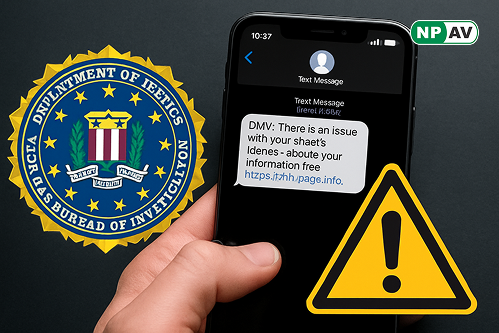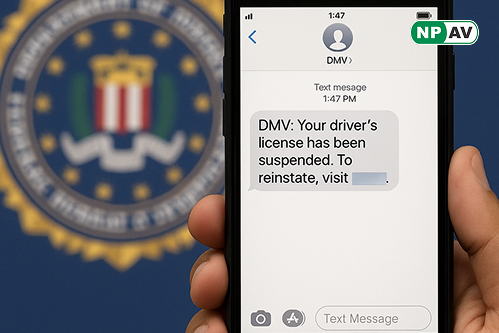FBI Issues Urgent Warning: Rising DMV Text Scam Threat Targets iPhone and Android Users

The FBI has issued an urgent alert to iPhone and Android users, advising them to delete fake DMV text messages immediately. According to security firm Guardio, these scam texts have surged by 773% in the first week of June alone.
DMV Scams Replace Toll Fraud as the New Cyber Threat
Previously, scammers deceived users with messages about unpaid tolls. Now, they have shifted to more sophisticated DMV-themed texts. These messages impersonate motor vehicle departments and lure users to phishing sites, where victims unknowingly share credit card information or install malware on their devices.
Scammers often register new domains that closely resemble official URLs, with many even embedding “.gov” in the web address to enhance their credibility.


FBI Links Scam Operations to Overseas Groups
FBI Supervisory Special Agent David Palmer confirmed that the attackers operate from foreign territories, including China. He explained that these texts enable criminals to install malware, steal personal data, and capture payment information.
“If you don’t recognize the sender, don’t click the link,” Palmer cautioned. Researchers at Resecurity estimate that a single attacker can send up to 2 million fake texts per day. At this alarming rate, scams could potentially reach 60 million people each month, targeting every U.S. citizen twice a year.
These texts are difficult to trace, as scammers create new URLs for nearly every message, using different state names and domain formats to evade spam filters.


FBI’s Safety Tips for Users
To protect themselves, users should:
- Delete any unsolicited DMV-related texts immediately.
- Avoid clicking links from unknown numbers.
- Report suspicious messages to local law enforcement or the FTC’s portal.
- Use anti-malware software and keep their phone software updated.
- The FBI emphasized that official government agencies never request payment or personal information via text messages.






